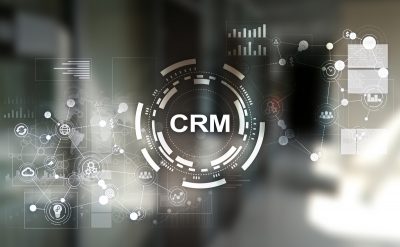With the introduction of enhanced Customer Relationship Management (CRM), businesses can finally make consumers the king.
CRM is the engine that drives customer trust and helps build strong customer relationships.
Before starting with the blog, let’s get the basics clear.
What is CRM?
A CRM or Customer Relationship Management is a customizable platform that allows businesses to keep track of all customer interaction, right from the first time they visit the company’s website to the last time they make a purchase. It comprises details such as buying preferences, contact details, and every minute conversation details with the customer.
In short, the CRM tool is like a godsend for businesses as it helps them manage their relationships with customers. One can also customize the information entered and retain it in the CRM just the way desired. The amount of information one would like to collect – little or more – will help serve the customers better and convert prospects more efficiently.
Following are the benefits for firms after incorporation of CRM –
- Enhanced teamwork.
- Happier customers.
- Higher productivity.
- Streamlined communication.
- Managed inbound and outbound leads.
- Increased visibility into daily sales activities.
The above-mentioned benefits show that CRM is at the heart of businesses to grow and take more consumers and prospects. But benefits will reap only when its implemented and used correctly. As part of the implementation, one needs to have a CRM strategy in the first place.
What is a CRM strategy?
A CRM strategy is an excellent platform that enhances efficacy, productivity, and profits. Organizations believe that customers are the lifeblood of their business, and developing relations with them and building on those relations is the fastest path to success.
Usually, businesses develop this strategy before buying CRM software. This helps them select the best tools, prices, and capabilities that suit their business well. But without an effective CRM strategy, employees may feel flooded with too many functions and may not use them at all.
Why do we need a CRM strategy?
A correct CRM strategy can help businesses convert leads, skyrocket growth, and boost sales.
Take an example…
Let’s assume that you plan to decorate your living room and plan to hang a photo frame. You take a nail and hammer and whack at the nail with the handle instead of the hammerhead. Of course, you won’t be able to hang any pictures that way. In fact, you’ll get the drywall repaired. Worse, what if you have a hammer but leave it in the toolbox and just hit the nail with your hand?
A pertinent question here is: You have the right tool, then why is it not working? Because you are not using the tool properly. Without a strategy, no tool on the earth will be helpful for the job you need to do. The same applies to a CRM.
There arises a question: How do you develop a CRM strategy?
A CRM strategy has everything to do with the company and its needs. It’s not a one-size-fits-all solution. This is why it is essential to devote some time to designing the correct CRM strategy for your business. Before designing the tool, one needs to determine three things:
- What goals have you set for the organization? What do you want from your CRM?
- Who are your consumers? How will you reach them?
- What does a buyer’s journey look like, and what are you hoping to accomplish?
Integrating the best CRM strategy is a win-win situation for businesses.
Here are some tips that will help businesses develop a winning CRM strategy:
1. Keep consumers happy
It is often said that customers are like God, and most businesses treat all of their customers equally. But for a company to be successful, it must prioritize its customers based upon how profitable they are. For instance, customers who come back are much more valuable, as on average, their spending is nearly doubled from what new consumers spend. However, it totally depends on an organization’s consumer value definition.
2. Set goals
The primary moto of a CRM is to help a company achieve its goals. And for that, the first step is to implement a CRM strategy to identify those goals. Once you are aware of what you want to achieve, the next step is to develop a plan to reach the goals. Divide your goals into smaller, achievable objectives, and then map out how and when to complete these steps. The map should be flexible so that changes can be made.
3. Communicate and include employees
One can select the most incredible CRM in the world with all the whistles and bells and the price tag to match, but if your employees are not on board both in their skills and mindset, it won’t matter much. Include your employee in each step of the strategic process. This will help them internalize the objectives and will give them personal ownership over the direction taken by the organization.
Help your employees understand the benefits of a CRM to them and the customers. Only then they will be eager to use it. Also, an invested employee will be better to combine new technologies and policies to benefit everyone involved.
4. Track consumers before first contact
The CRM framework allows businesses to capture data at every step of the customer journey. Despite this, many companies fail to put their CRM to work until after the first few steps are made. It is, thus, necessary to prepare for initial contact with your lead by using your CRM to divide what kind of data your prospective consumer shares across social media platforms. This will give you an idea about consumers’ requirements, how they want you to deliver on those requirements, and what they expect in the future.
5. Find your voice
The CRM platform can be used to communicate via email messaging and other channels from the start of the prospect’s journey all the way via the consumer’s lifecycle. This is why it’s important to make a decision beforehand about the tone and communication style. Should you be casual or formal or humorous or straightfaced. This should be determined early as it ensures that every employee abides by the decision.
6. Sync everything to CRM
Most CRMs have their own built-in programs that mimic the functionality of other, often used applications. When this is the case, it is easy for your system to sync together so that the CRM can track all of your appointments or notes automatically. However, for times when other applications are necessary, make sure to sync your CRM with other programs that can be utilized. A good CRM can do this automatically. Updating cancellations, importing client-related appointments from the calendar, and sending reminders are done efficiently and automatically with the best CRMs. Syncing everything together will guarantee that you are using CRM to its full ability.
A CRM strategy is more important to businesses because it can help one gain new consumers and retain the existing ones. In fact, there’s no stopping for the CRM industry!
A report by Gartner says, “CRM software revenues have now overtaken database management systems to become the largest of all the software markets!”
Final verdict – one tool to rule them all!
No more sticky notes to maintain consumers’ wishes, CRM can help organizations fulfill all the desires and maintain a healthy relationship with consumers.
A CRM can be your lifeline only if used correctly. A correct CRM strategy will help businesses grow and make life easier for both employees and customers. CRM is more than an enhanced tool that allows a company to achieve its goals. Thus, integrating CRM with a detailed and flexible business strategy will help keep consumers ahead of your business focus.
Did you know?
As per a study by the US Bureau of Labor Statistics (BLS):
- About 20 per cent of start-ups fail during the first two years.
- About 25 per cent of new organizations make it to 15 years or more.
- About 45 per cent fail within the first five years.
We know you want to be among the 25 per cent, and we know you can! This is why you need a robust CRM strategy to retain and acquire consumers.
If you haven’t started with CRM, why wait? Plan your consumer strategy today to enhance business.
For more such information download our latest whitepapers on customer relationship management.












